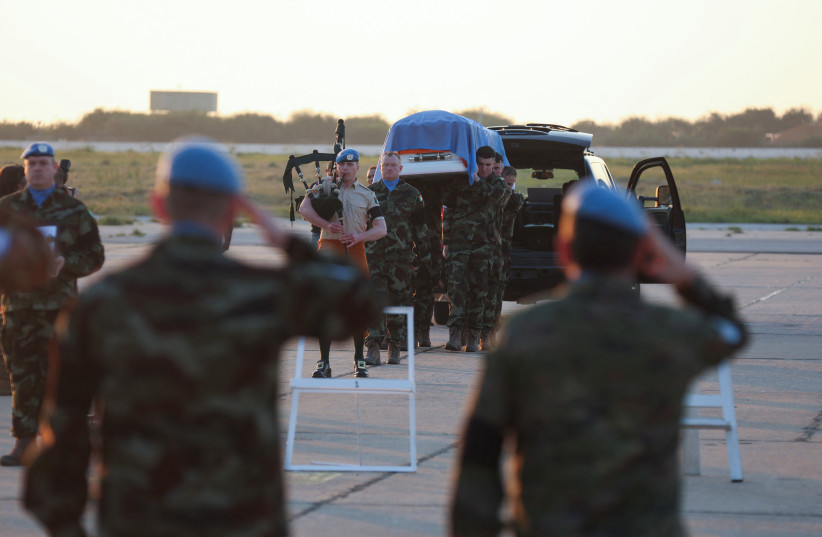The row involving Israel, the UN, and some countries regarding UNIFIL is not as self-evident as it appears to be. Peacekeeping forces have no formal provision within the United Nations Charter.
The United Nations’s system formally recognizes either peaceful solutions to conflicts (Chapter VI); or measures of the use of force, restricted to the self-defense of states, in case of an armed attack (Chapter VII). It is rather the international practice that has determined the peacekeeping forces should back ceasefires, or interfere on humanitarian grounds.
According to the UN, “Peacekeepers protect civilians, actively prevent conflict, reduce violence, strengthen security, and empower national authorities to assume these responsibilities. This requires a coherent security and peacebuilding strategy that supports the political strategy.”
UNIFIL, established in 1978, changed its mandate to increase its presence. Following the Second Lebanon War (2006), the Security Council expanded UNIFIL’s original mandate, stating that its purpose was to “monitor the cessation of hostilities; accompany and support the Lebanese armed forces as they deploy throughout the south of Lebanon; and extend its assistance to help ensure humanitarian access to civilian populations and the voluntary and safe return of displaced persons.”
That means that whenever there is no longer a cessation of hostilities (as occurred since October 8, 2023) UNIFIL’s main task is undefined, and it may find itself playing a role contrary to its original purpose, as a peacekeeping force.

How can UNIFIL act reliably?
Nevertheless, UNIFIL can have a positive role during wartime. But for this purpose, both parties to the conflict must have confidence in it; In other words, the peacekeeping force must be extremely careful about impartiality, and this is much more challenging during wartime.
So how can UNIFIL continue functioning as a reliable actor, both in the eyes of Israel and in the eyes of Lebanon?
In Lebanon, the government sided with UNIFIL when some of its personnel were injured during the battle between Israel and Hezbollah. The same happened with countries participating in UNIFIL. Italy, the country that is currently leading the UNIFIL peacekeeping effort in Lebanon has adopted a hostile tone toward Israel. This approach, however, ignores the facts on the ground, and risks further aggravating the mistrust between Israel and the UN.
Israel has accused UNIFIL of providing a shield for Hezbollah. From Israel’s point of view, without a buffer zone, the tiny positions granted to UNIFIL in South Lebanon turn into an asset to Hezbollah. As such, the blame game between the UN and Israel increases as the IDF advances in South Lebanon.
There is truth in Israel’s claim that the force’s insistence on remaining in the same positions in South Lebanon is at best counterproductive. Not only is there a danger that UNIFIL members could be caught in the crossfire, but there is also the question: How are they supposed to continue to provide humanitarian aid to the population of southern Lebanon that is no longer in place (and unlike UNIFIL was displaced and fled north.)
Does UNIFIL then have an active role to play during the war? The answer is yes. However, it needs to adapt its strategy to cope with the current situation. Humanitarian assistance to the local population does not have to stop, on the contrary, UNIFIL can help ease the suffering of the civilian population, but it should show more flexibility while doing so.
Unlike other peacekeeping forces, which have had their reputation damaged by scandals, including sex abuse in exchange for aid, this is not the case for UNIFIL.
Its size and capabilities can now be redirected toward logistical support. It can collaborate with other organizations, states, and NGOs. This could be a step toward curbing Israel’s intention to push for an end to UNIFIL. Alternatively, it risks turning into an entity exploited by Hezbollah as a trap for IDF forces.
The writer is a legal consultant on strategic international advocacy. She is a former senior lecturer on international law in Brazil and a Zvi Meitar Center for Advanced Legal Studies fellow researcher.
